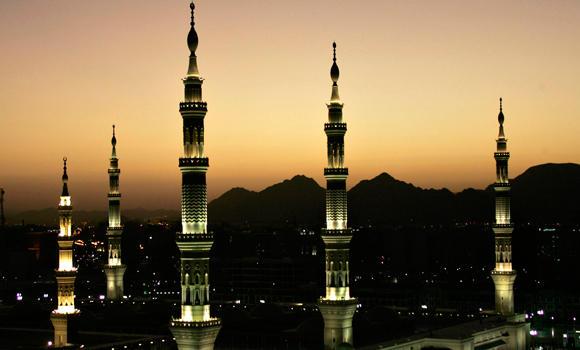
Jeddah, Nov 26: Crown Prince Salman, deputy premier and minister of defense, will inaugurate a world conference on Prophet Muhammad (peace be upon him) at the Islamic University of Madinah on Tuesday.
President of the university Abdulrahman Al-Sanad thanked Custodian of the Two Holy Mosques King Abdullah, Crown Prince Salman and Prince Muqrin for extending support to the university. He also thanked Madinah Gov. Prince Faisal bin Salman and Education Minister Khalid Al-Angari.
Al-Sanad said the first theme of the conference is “The Universal Prophet Muhammad (pbuh) and His Message,” which would include topics like the role of Islam in meeting human, spiritual and moral needs, Islam and the building of human civilization, Prophet Muhammad (pbuh) and the unity of the nation, the global Islamic da’wa (causes and constituents) and the Islamic da’wa autonomy amidst time, space and race constraints.
The second theme, he said, is “The Prophet Muhammad (pbuh) and the establishment of universal human principles,” which will include the principles of justice and consultation, equality, dialogue and acceptance of others, peaceful coexistence between individuals and nations and tolerance while achieving rights.
The third theme, entitled, “Prophet Muhammad (pbuh) and Building the Islamic Identity,” will cover topics like respect for human dignity based on the guidance from the Prophet, the endorsement of values of loyalty to the religion and the nation as spelt out in the sayings of Prophet Muhammad (pbuh) and his actions, building of Islamic character, building of the foundations of Islamic identity, methodology of obedience to the governors, and the issue of personal freedom as expressed by Prophet Muhammad (pbuh).
The fourth theme, entitled “The Rights of Prophet Muhammad (pbuh) on Humanity,” will look at issues like the rights of Prophet Muhammad (pbuh) as expressed by him, teaching of his curriculum and the dissemination of his call, consideration of his call as a source of legislation, how to distance oneself from everything that is not worthy or meets the qualities of the prophets and messengers of God, how to stop abusive information about the Prophet (pbuh) and defend him, and exploring mechanisms to spread global recognition of his rights on humanity.





Comments
Add new comment